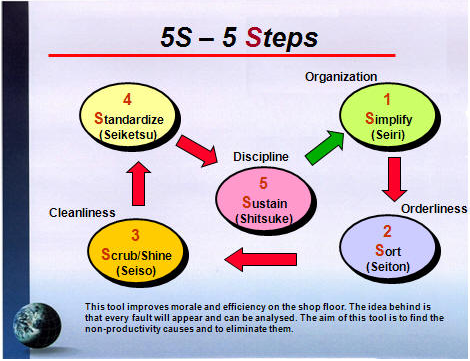All people take pride in their work. A lot
of people say they don’t, but we all want to feel useful, skilled, and
knowledgeable. This should always be a consideration when creating and
implementing an on-the-job training program. Training can be looked at two
different ways. Employees can see it as an opportunity to expand their
skillsets and advance their careers, or they can see it as an indictment of
their current skill and way of working. Trainers always need to aim for the
former response. This is especially true for Kaizen training. Kaizen is a
Japanese word that means to continuously improve the way you work, from day to
day, and in small increments. If trainees can’t see this as an opportunity to
advance themselves, they will not be able to truly grasp the Kaizen concept.

{ Image Credit = bbasicsllc }
For starters, it is often said that “Kaizen
comes from within.” That might sound like a lot of new-age mumbo-jumbo, but it
serves a very practical purpose. Anyone who has tried to reform a workplace
knows that improvements dictated from above rarely stick. Not only is it harder
to get support for such improvement initiative, they are also harder for
employees to learn, remember, and sustain. If, on the other hand, employees
discover problems and implement solutions using their own expertise, they will
develop improvements that they understand and support from the inside out.
Even if you just set out to “do some 5S”, Kaizen
training is important. Kaizen is not just another tool in the Lean tool
belt; it is a vital element of every Lean methodology. If you are conducting Lean
training for TPM, SMED, or the more well-known 5S,
you will need a foundation of Kaizen to build your program upon. No Lean system
can sustain itself without Kaizen. To sustain a program in the Lean sense is
not just about maintaining the standards; it is about improving and building
upon the standards. If employees view training as a long detention in a
classroom, they will not develop the engaged and self-motivated mindset that
makes continuous improvement possible.
Lean and its underlying philosophy of Kaizen support and develop standards, but that doesn't mean that these improvement methodologies themselves are a standard process. Every company is different, and knowing yourself, your team, and your objectives is a prerequisite for the kind of company Kaizen culture that Lean organizations demand. Who wouldn’t want to work for a company where everyone is encouraged to give their input and change for the better?
Lean and its underlying philosophy of Kaizen support and develop standards, but that doesn't mean that these improvement methodologies themselves are a standard process. Every company is different, and knowing yourself, your team, and your objectives is a prerequisite for the kind of company Kaizen culture that Lean organizations demand. Who wouldn’t want to work for a company where everyone is encouraged to give their input and change for the better?
No comments:
Post a Comment